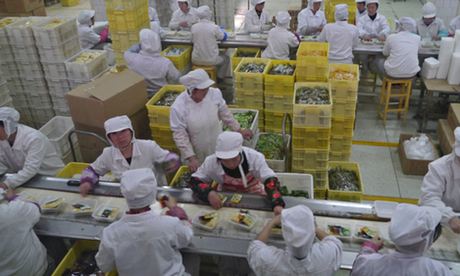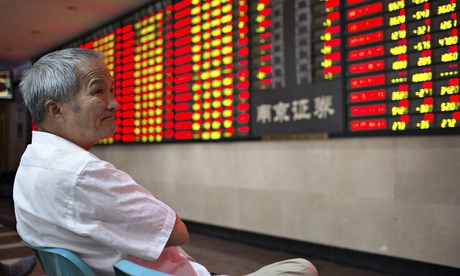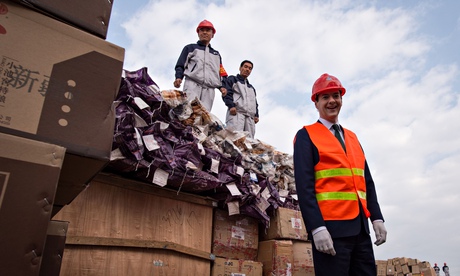Since 2008, an explosion in debt-fuelled expenditure – on infrastructure and property, not shopping – has kept the economy racing ahead. If China is to overtake the US as the world's economic powerhouse, this boom must not derail Beijing.
In the first phase of the borrowing boom, the finance ministry sanctioned a huge government-funded post-crash stimulus. In a second phase, it allowed local authorities and state-run enterprises to go on a borrowing spree.
The borrowing – which tops $3tn (£1.8tn) in the local government sector alone – has disguised massive over-production and a squeeze on private sector profits from greater competition and rising wages. Local authorities have financed their losses with land sales. Recent figures show that about 37% of provincial, city and county government debts are backed by land sales revenues.
Last year was supposed to mark the end of this post-crash period and see China wean itself off debt as a means of maintaining consumer demand. Workers were supposed to start spending their earnings and allow businesses to cut back borrowing. But the savings habit has persisted. And the extent of bad loans has soared to 17% of GDP. The total is so large it could topple one of China's big four banks.
Amid the bullish forecasts, one respected economic consultancy said recently that China's GDP growth could fall to 2% over the next few years with bad debts rising beyond 20% of GDP unless the situation is alleviated.
While this may seem exaggerated, assurances from senior ministers that growth is heading for 7.5% this year are looking thin.
In March, finance minister Lou Jiwei said it would be acceptable for China to miss its target so long as enough jobs were created, which is one way of puncturing expectations.
The pessimism is not shared inside the politburo or in academic circles in China. While there is concern that local authority borrowing is difficult to control and some state-run enterprises are already drunk on debt and ready to fall over, the consensus is that foreign exchange reserves built up over decades can be spent on bank rescues, should the wheels start to come off.
At its worst, the bad debt bill could reach $3tn. There is $3.8tn sitting in the People's Bank of China's foreign reserves fund, so it could save the system if necessary. But Beijing's cupboard would be left horribly bare.











